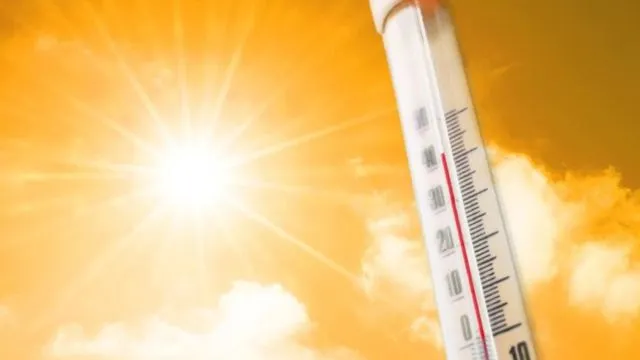- By Prerna Targhotra
- Fri, 24 May 2024 09:42 AM (IST)
- Source:JND
Severe Heatwave In Delhi: The Indian Meteorological Department’s (IMD) latest weather predictions, heatwave to severe heatwave conditions will prevail in several parts of northern India. A heatwave is usually defined as a period of abnormally high temperatures, more than the normal temperatures occurring during the summer months. With the increasing temperatures, the scare of heart-related illnesses has also elevated. There is a very high risk of heat-related illnesses and heat strokes for people of all ages.
Who Is At Risk From Heatwaves?
According to WHO, too much heat is dangerous for everyone's health. Infants, children, pregnant women and the elderly are especially vulnerable to heat stress. Too much heat can also be dangerous for babies and children more than adults. This is because children’s bodies have more trouble regulating temperature than those of adults, and they rely on adults to help protect them from heat.
Pregnant women are also at a high risk of getting affected by heatwaves. WHO states that too much heat and dehydration can put the baby at higher risk of low birth weight, early birth and even stillbirth. Pregnant women themselves can be negatively affected and go into early labour, as well as develop gestational diabetes and hypertension.
How To Protect Yourself From Heatwaves?
Keep an emergency kit at home that contains oral rehydration salt (ORS) packets, a thermometer, water bottles, towels or cloths to wet for cooling, a handheld fan or mister with batteries, and a checklist to identify and treat symptoms of heat stress.
When possible, close the curtains during the hottest parts of the day and open windows at night time to cool down the house.

Safety Tips For Heatwave (Image Credits: Canva)
Do not go outside during the hottest times of the day if you can avoid it. Try to arrange your activities earlier or later in the day when it is cooler.
When outside, wear sunscreen and try to stay in the shade or use hats and umbrellas for protection.
Cotton is ideal during hot days to help reduce heat rashes and absorb sweating. Similarly, cotton bed sheets are recommended over non-breathable materials.
Carry a water bottle and a small towel, so you can hydrate and cool down by placing a wet towel on your neck.
Drink water at regular intervals before you are thirsty.
Do not let your children play outside for long hours when it is hot and without keeping an eye on them. Have them rest every 30 minutes when exercising or playing outside.
(Disclaimer: This article is for informational purposes only. It is not a substitute for professional advice, diagnosis or treatment.)

